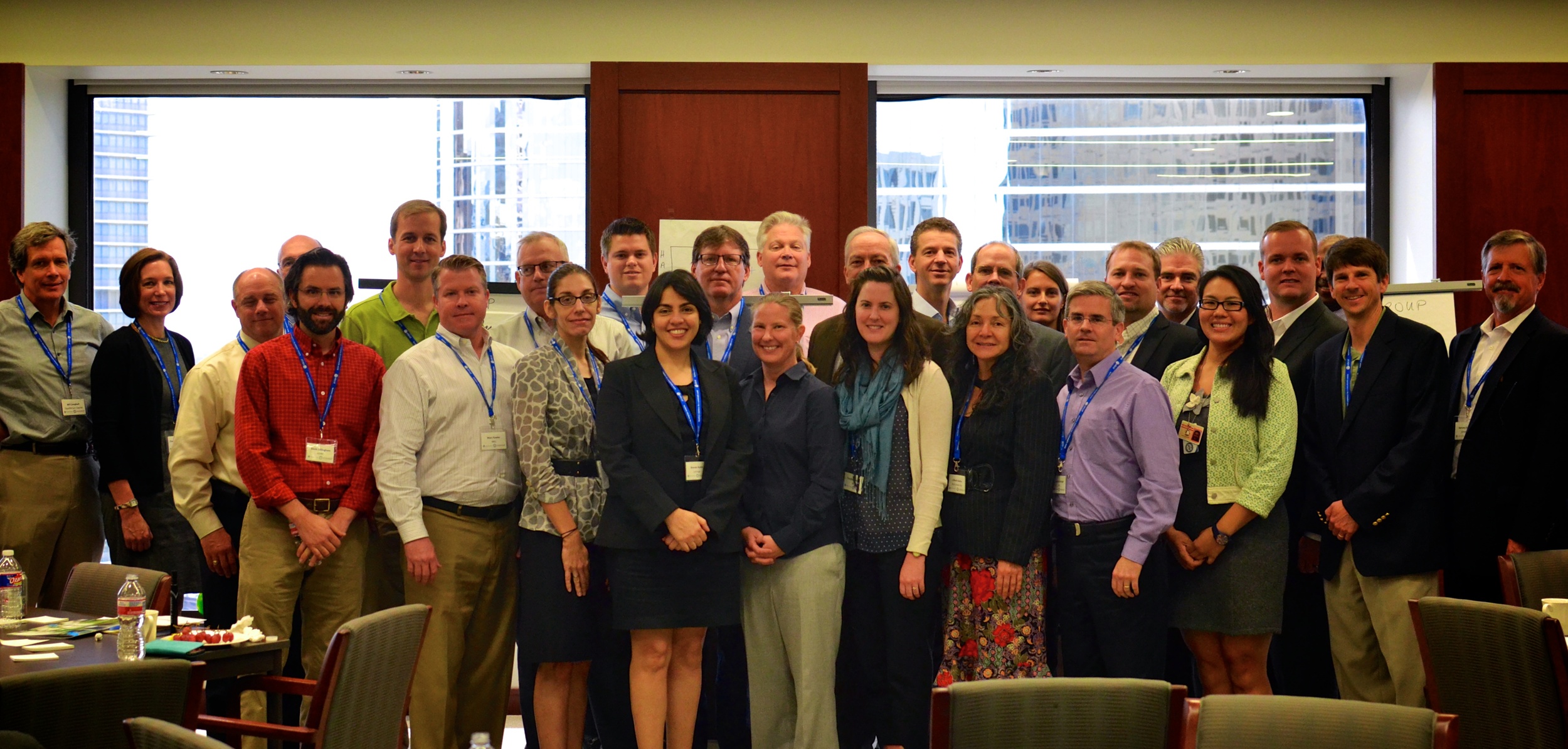Accelerating Investments in Energy Efficiency in Houston’s Building Market
 Houston / Geneva, October 10, 2014 – The World Business Council for Sustainable Development (WBCSD), the United States Business Council for Sustainable Development (US BCSD) and partners in the WBCSD’s Energy Efficiency in Buildings market transformation initiative convened a deep-dive workshop exploring ambitious and actionable strategies for reducing energy consumption in buildings by 30% or more in the Houston market.
Houston / Geneva, October 10, 2014 – The World Business Council for Sustainable Development (WBCSD), the United States Business Council for Sustainable Development (US BCSD) and partners in the WBCSD’s Energy Efficiency in Buildings market transformation initiative convened a deep-dive workshop exploring ambitious and actionable strategies for reducing energy consumption in buildings by 30% or more in the Houston market.
This workshop, known as an “EEB Laboratory”, was timely following the announcement by Houston’s Mayor Annise Parker, at the occasion of the UN Summit on Climate Change on September 23, that by 2050, Houston - America's energy capital - would cut CO2 emissions 80% from 2005 levels, the same as New York City's pledge.
A 30% energy saving in the commercial sector alone could translate into replacing 10 mid-size power plants and adding almost a billion dollars to the Houston economy.
During three days, a committee of experts made up of representatives from the WBCSD member companies and partners discussed with developers, investors, designers, engineers, facility operators and tenants how to define the business case for investments in energy efficiency of buildings for different stakeholder groups in the building value chain. Four topics were at the heart of the debate:
[themify_hr color="light-gray" width="70%" border_width="1px" ]
[themify_col grid="4-1 first"]
Increasing value to stakeholders through energy efficiency
[/themify_col]
[themify_col grid="4-1"]
Investing and Financing
[/themify_col]
[themify_col grid="4-1"]
Verifying value and return on investments
[/themify_col]
[themify_col grid="4-1"]
Appropriate policy and regulation
[/themify_col]
[themify_hr color="light-gray" width="70%" border_width="1px" ]
The Laboratory identified ways to accelerate investments through awareness-raising, innovative financing approaches, improved operational performance to achieve energy savings, and the introduction of policies for increased market transparency.
 The Laboratory also revealed there has been strong progress with the corporate sector driving demand for energy efficient Class A buildings. Meanwhile, the City of Houston is implementing energy efficiency programs for public buildings, developing progressive building energy codes and targeted incentive schemes are working well.
The Laboratory also revealed there has been strong progress with the corporate sector driving demand for energy efficient Class A buildings. Meanwhile, the City of Houston is implementing energy efficiency programs for public buildings, developing progressive building energy codes and targeted incentive schemes are working well.
A detailed summary including a plan to foster the widespread uptake of energy efficiency in buildings in the Houston market will be published shortly.
“Houston has a tradition of private sector leadership – it is the ideal place to show that energy efficiency in buildings makes business sense”. - Andy Mangan, Executive Director, US BCSD
Roland Hunziker, Director Sustainable Buildings at the WBCSD, said: “The EEB Laboratory in Houston was the fourth such event led by the WBCSD after San Franciso, Shanghai and Warsaw. More Laboratories will be held in developed and emerging markets around the globe in order to surface good practice examples and foster learning between metropolitan and regional markets.”
With the Manifesto for Energy Efficiency in Buildings, the WBCSD provides the opportunity to any building owner, developer, investor or tenant to publicly state their commitment to enhance energy efficiency in their building stock, within a self-determined scope. An Energy Efficiency Toolkit is also freely available to help large owners, tenants and real estate management companies identify financially viable, yet ambitious, energy efficiency measures across a given building portfolio.
Other Press: Houston Chronicle - October 10, 2014 - Energy Efficiency 'Makes Business Sense' Houston Chronicle - October 7, 2014 - Classy old buildings strive for modern energy efficiencies
